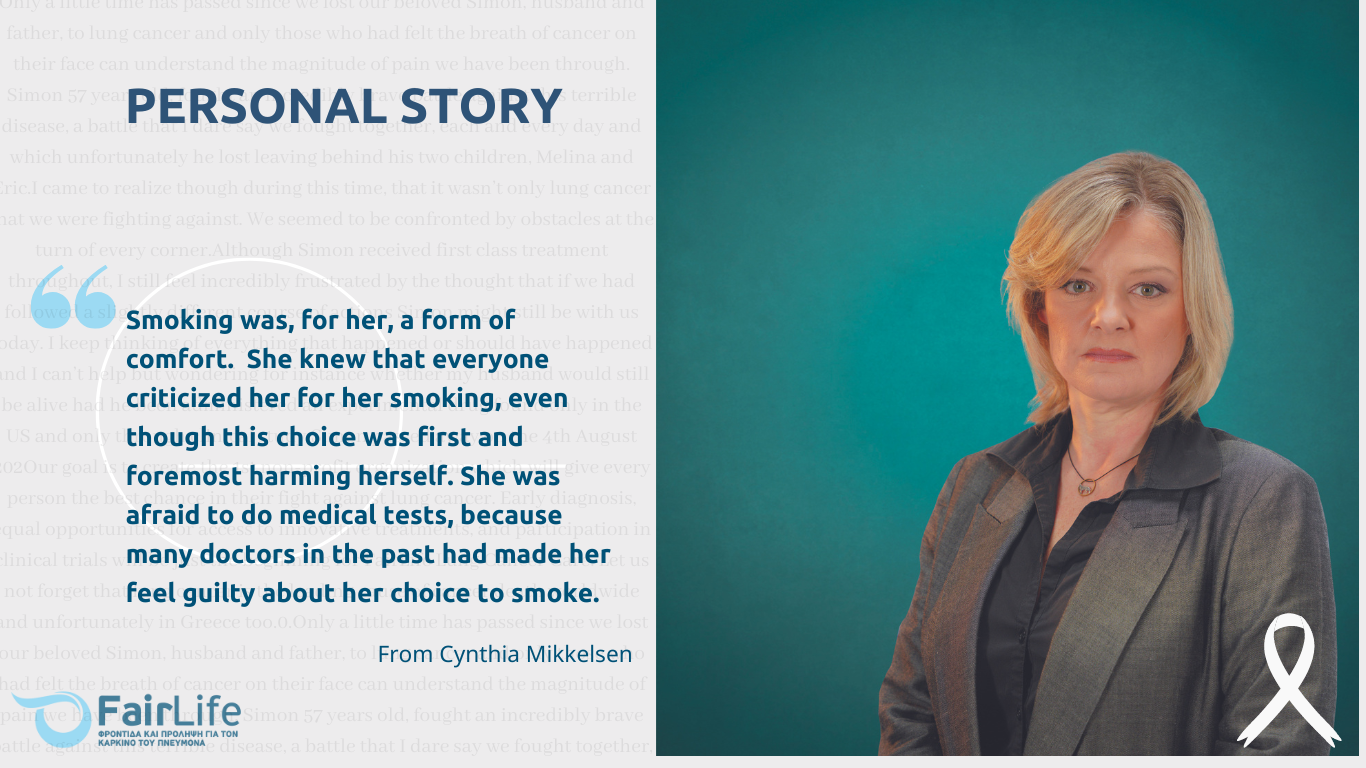
I was convinced that cancer doesn’t concern me, can’t touch me or my loved ones. I WAS SO WRONG.
By Cynthia Mikkelsen, family member
Lung cancer deprived me of my mother a year ago and during the last four months three more people in my close environment have been diagnosed with lung cancer and are undergoing treatment.
I thought cancer in the elderly progresses slowly and thus I would have more time with her. I WAS WRONG.
Both primary cancer and metastases were diagnosed on December 21st, 2021.On February 8th, 2022, my mother peacefully passed away free of pain and fear. Not even 2 months had passed since her diagnosis and she only had time for one chemotherapy treatment.
I thought that cancer gives early signs and warns from its very beginning. I WAS WRONG.
My mother was very active and although she was 77, her stamina was way better than mine.
She was an educated, cultured woman, full of life and dreams, until she began to rapidly lose strength in early December 2021.
My mother was a smoker for over 40 years, but she always made sure to respect those around her and used to smoke in open spaces, alone.
Smoking was, for her, a form of comfort, especially when she was upset.She knew that everyone criticized her for her smoking, even though this choice was first and foremost harming herself. She was afraid to do medical tests, because many doctors in the past had made her feel guilty about her choice to smoke.
The stigma surrounding lung cancer marginalizes the patient and even prevents someone from getting tested and possibly diagnosed in good time and be informed about the available treatment options.
As with cervical cancer, someone with lung cancer is considered responsible for one’s illness. But given that cervical cancer mainly affects young people, the State took the decision to include the vaccine against HPV (human papilloma virus) in the National Immunization Program for children. Why not also include preventive low-dose radiation computed tomography (LDCT) for lung cancer amongst health preventing examinations?
“I will treat her as if she were young” were the doctor’s first words.
The age stigma is another factor that prevents someone from being thoroughly examined, since age, unfortunately, differentiates the way the medical staff treats elder people. Young or old, each patient must receive equal treatment from the medical and nursing personnel.
She may not have been young when diagnosed but she was my mother, not just another patient.
Her name was Anna Mikkelsen and she wasn’t just a smoker or just a woman over 70. My mother was a person of tremendous empathy, understanding and always tentative to other people’s needs.
Her death resulted in 2 people who knew her very well quitting smoking, as they had been heavy smokers for over 3 decades and, now they know that cancer can knock on their door as well.
The next step they need to take is to overcome the fear of the examination, because they believe that they will be scrutinized for their choice to smoke in previous years.
Each person is unique.
We, as a society, must treat every human being as a unique person throughout his/her life.
Being stigmatized about one’s age or life choices has no place among civilized societies in the 21st century.